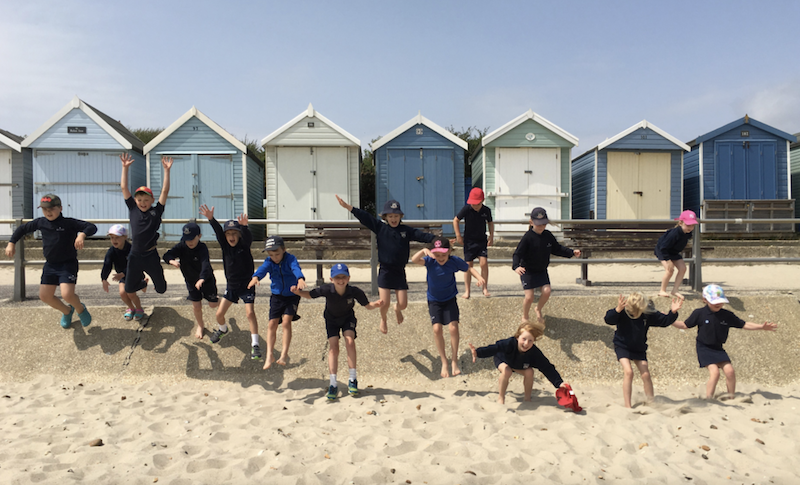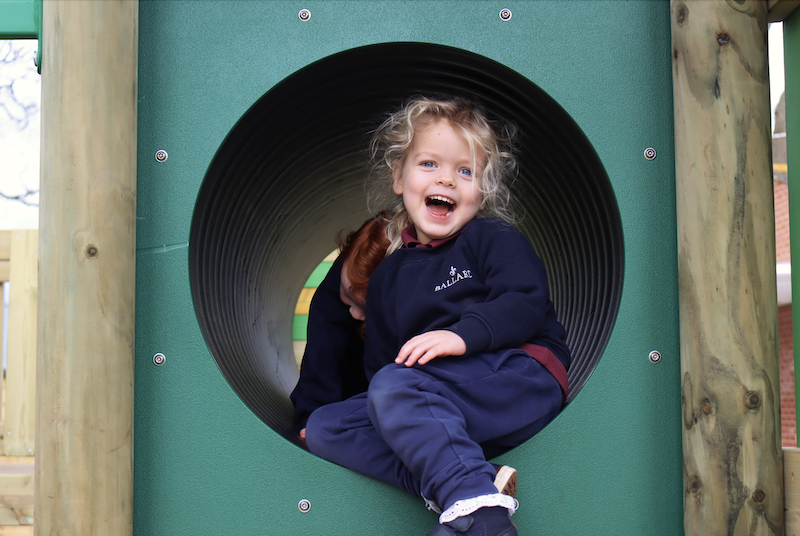Busy happy children
Posted on 14th May 2024 in Prep Schools Guide, Co-curricular
Andrew McCleave, Headmaster of Ballard School, expresses why happiness needs to be at the forefront of education and how independent schools ensure that our children flourish.
Research shows that busy, happy children do well in the classroom. With a multitude of sports, arts, life skills and academic enrichment opportunities on offer, an independent education provides something for everyone.
At Ballard, our excellent co-curricular provision underpins both pupils’ wellbeing and academic achievements throughout their journey, from Nursery to GCSE, teaching children key life and practical skills. Described as a ‘virtuous circle’ by Professor Dame Sally C Davies (in her 2012 “Chief Medical Officer of England, Annual Report”) by “reinforcing children’s attainment and achieving that in turn improves their wellbeing, enabling children to thrive and achieve their full potential.”
Our leadership structure underlines the importance we place on the balance of these elements at Ballard – we have a Deputy Head Academic, a Deputy Head Pastoral and a Director of Co-curricular. By combining a rigorous academic approach with proactive pastoral care and increasing our co-curricular activities by 40% to 175 per week (Autumn Term 2023) we are seeing our pupils thrive in and out of the classroom.
In her study, ‘An Unequal Playing Field’ (2019), the Social Mobility Commission Chair, Dame Martina Milburn, found that co-curricular activities led to several “…important benefits - a sense of belonging, increased confidence and social skills, which are invaluable to employers.” It is not just weekly activities that engage pupils; independent schools offer trips to broaden their pupils’ horizons. At Ballard pupils start their visits in Reception, with our first residential trip happening in Year 5 during our Summer Trips Week. Whether it is a trip to the zoo, museums, or a foreign country, these trips are designed to build confidence and instil a love of learning. They also allow for immersion in areas of interest, for example our music tour to Barcelona this summer, and an annual fully funded scholars’ trip; this year we took our scholars to visit the Hadron Collider at CERN and the UN HQ in Geneva.
In 2014, Public Health England reported that schools that put in place programmes to develop children’s social and emotional skills on average witness an 11% increase in attainment. The success of this approach was reflected in Ballard’s latest set of GCSE results, which, once again, bucked the national trend, particularly for the highest grades. On average, all pupils gained an improvement of 0.85 of a grade above their expected level in all their subjects - incredible value added.

Classes in independent schools are large enough to facilitate lively, challenging lessons, yet small enough so that every pupil is known. This allows staff to help pupils develop successfully, both academically and pastorally. It allows for a tailored approach to teaching, encouraging creativity, another essential element in education.
A plethora of research highlights creativity as an essential human skill, imperative in our technology-driven world. 85% of university educated professionals say creative thinking is critical for problem solving in their careers (Adobe). LinkedIn found that creativity is the second most in-demand job skill (after cloud computing). The creative process involves a great deal of trial and error. This productive struggle builds resilience, teaching pupils to push through difficulty to reach success, building their emotional development. When you combine creativity with the latest technology, available in many independent schools, results are even better.
Independent schools have the funds to invest in their facilities and equipment. From the very start of their educational journey pupils can use Ballard’s fantastic facilities, including an Olympic sized astroturf, swimming pool, and Performing Arts Centre. Specialist Cooking, Dance, Gymnastics, PE and Music lessons are taught from Nursery, with Yoga, Forest and Beach School from Reception, and French and PSHE introduced in Year 1. By Year 3, pupils have specialist DT, Expressive Arts, ICT and Science lessons with Spanish added in Year 5. Year 7 pupils are all taught by GCSE specialist teachers with setting for key subjects and an array of enrichment tools to develop pupils’ skills further.
Many independent schools also have extensive grounds for pupils to play in and learn outdoors. Our 34 acre site is home to an abundance of nature for pupils to explore, including two Forest School sites, trees to climb, ditches to jump, ponds in which to dip, streams to dam, gardens to grow, bee hives to harvest and bluebell woods and wild meadows for flowers. We also have plenty of purpose-built play areas and equipment, football goals and volleyball nets for impromptu games, scooters and trikes to race around on, ensuring that pupils enjoy their play as much as their lessons.
By educating the whole child, we develop well-rounded individuals, fully equipped to deal with college, careers and our community. Alongside inspiring lessons, our extensive co-curricular programme encourages pupils to find their niche, improve skills, develop talents or discover a new passion. Years of experience enable us to nurture each child to be the best they can be, adding value to their GCSEs and helping them with those all important next steps.
Through all of this, independent schools ignite passions and develop skills, helping each child to reach their potential, instilling a love of learning, and having lots of fun on the way.
This article appears in the 2024 edition of John Catt's Preparatory Schools, which you can view here: